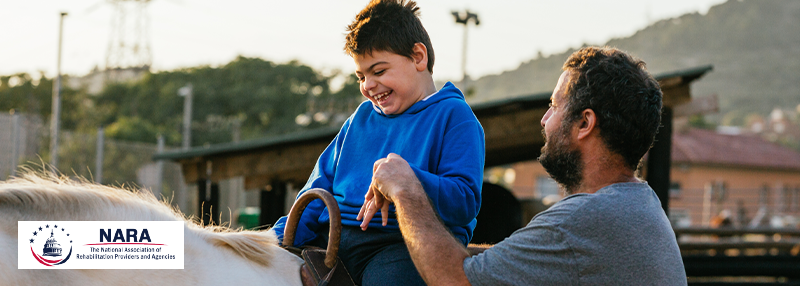Posted On: February 19, 2025 by NARA in: Therapy Programs Therapy Treatment

February is National Therapeutic Recreation Month, a time to recognize the importance of recreational therapy in rehabilitation. As a vital component of the rehabilitation process, recreational therapy plays a crucial role in helping individuals with physical, emotional, or cognitive disabilities to achieve their full potential.
The Role of Recreational Therapy in Rehabilitation
Recreational therapy, also known as therapeutic recreation, is a type of therapy that uses recreational activities to help individuals with disabilities or illnesses to achieve their goals and improve their overall well-being. Recreational therapy is designed to promote physical, emotional, and cognitive growth, and to enhance the individual's ability to participate in daily activities and community life.
Recreational therapy is an essential part of the rehabilitation process, as it helps individuals to:
- Build confidence and self-esteem
- Develop new skills and abilities
- Improve physical function and mobility
- Enhance cognitive function and memory
- Manage stress and anxiety
- Increase social interaction and community participation
Incorporating Recreational Activities into Therapy Sessions
So, how can recreational activities be incorporated into therapy sessions? Here are a few ideas:
- Outdoor activities: Incorporate outdoor activities such as hiking, camping, or gardening into therapy sessions to promote physical activity and social interaction.
- Arts and crafts: Use arts and crafts activities such as painting, drawing, or pottery to promote creativity and self-expression.
- Sports and games: Incorporate sports and games such as bowling, basketball, or board games into therapy sessions to promote social interaction and physical activity.
- Music and dance: Use music and dance activities such as karaoke or Zumba to promote physical activity and social interaction.
- Cooking and nutrition: Incorporate cooking and nutrition activities into therapy sessions to promote independence and self-care.
Benefits of Recreational Therapy
The benefits of recreational therapy are numerous and far-reaching. Some of the benefits include:
Improved Physical Function
Recreational therapy can help individuals to improve their physical function and mobility, reducing the risk of chronic diseases and improving overall health.
Enhanced Cognitive Function
Recreational therapy can help individuals to improve their cognitive function and memory, reducing the risk of cognitive decline and improving overall mental health.
Increased Social Interaction
Recreational therapy can help individuals to increase their social interaction and community participation, reducing the risk of social isolation and improving overall well-being.
Improved Mental Health
Recreational therapy can help individuals to manage stress and anxiety, reducing the risk of mental health disorders and improving overall mental health.
Thank You, Recreational Therapists!
National Therapeutic Recreation Month is a time to recognize the importance of recreational therapy in rehabilitation. By incorporating recreational activities into therapy sessions, individuals with disabilities or illnesses can achieve their goals and improve their overall well-being. Recreational therapy is a vital component of the rehabilitation process, and its benefits are numerous and far-reaching.
Get Involved
National Therapeutic Recreation Month is a time to recognize the importance of recreational therapy in rehabilitation. By incorporating recreational activities into therapy sessions, individuals with disabilities or illnesses can achieve their goals and improve their overall well-being. Recreational therapy is a vital component of the rehabilitation process, and its benefits are numerous and far-reaching.

0 comments